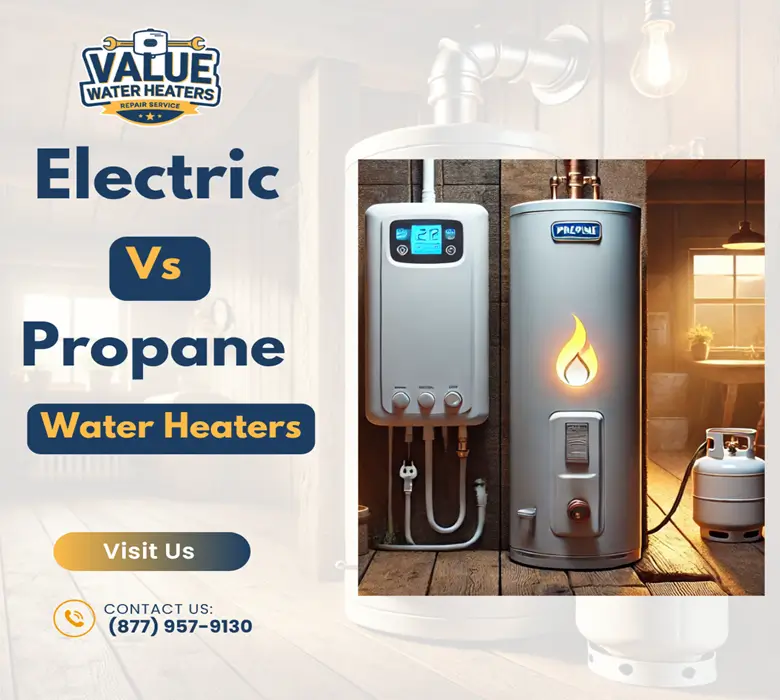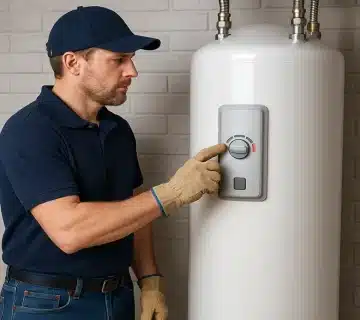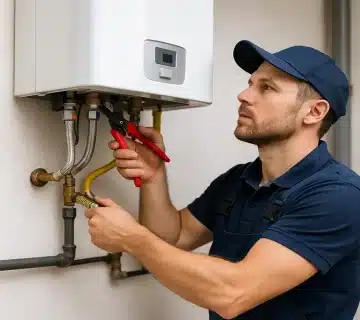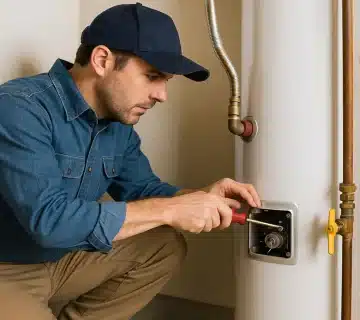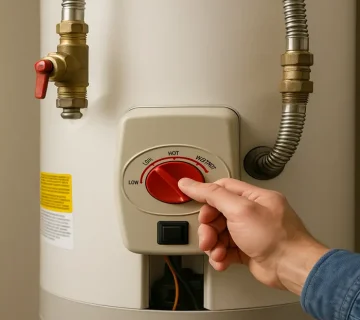Electric vs Propane Water Heaters are a common consideration for homeowners wondering which option will best meet their needs. Both types have unique advantages, and understanding these can help you make the best choice for your home. Whether you’re upgrading, building a new home, or replacing an old system, here are seven powerful reasons to help you decide which water heater suits your lifestyle, energy needs, and budget.
1. Energy Efficiency in Electric vs Propane Water Heaters
One of the biggest factors when comparing Electric vs Propane Water Heaters is energy efficiency. Electric water heaters are generally more efficient in converting energy to heat because nearly all the electricity used is transformed into hot water. However, the cost of electricity in your area might affect the overall operational expenses.
Propane water heaters, on the other hand, heat water much faster and are often more energy-efficient when it comes to heating large quantities of water. For families with high hot water demands, propane heaters may use less energy overall despite slightly higher fuel costs.
Key Takeaway: If speed and high demand are priorities, propane wins. For energy conversion efficiency, electric is the better option.
2. Cost of Installation for Electric vs Propane Water Heaters
The upfront costs of installation vary significantly between the two types of water heaters. Electric vs Propane Water Heaters differ in that electric water heaters are usually less expensive to purchase and install. They don’t require venting systems or additional piping, which keeps installation costs low.
Conversely, propane water heaters may involve higher upfront expenses due to the need for proper ventilation and a propane storage tank. If your home isn’t already equipped for propane, the costs can rise further.
Key Takeaway: For a budget-friendly installation, electric water heaters are more economical.
3. Operating Costs of Electric vs Propane Water Heaters
The long-term operational costs of Electric vs Propane Water Heaters depend heavily on energy prices in your area. Electricity is generally more expensive per unit of energy compared to propane, meaning propane water heaters often have lower operating costs. However, they’re more dependent on market fluctuations for propane pricing.
Key Takeaway: If propane prices are stable and affordable in your area, a propane water heater could save you money in the long run.
4. Performance and Recovery Time: Electric vs Propane Water Heaters
Performance is a key consideration for many homeowners. Propane water heaters typically outperform electric models in terms of heating speed and recovery time. This means they can heat water quickly after the supply has been depleted, making them ideal for households with high water usage.
Electric water heaters, while slower to recover, can maintain consistent performance in homes with moderate hot water demands. Additionally, modern electric models with tankless designs are closing the gap on performance.
Key Takeaway: For rapid heating and quick recovery, propane water heaters take the lead.
5. Environmental Impact of Electric vs Propane Water Heaters
The environmental impact of each type of water heater depends on how the electricity or propane is generated. Electric vs Propane Water Heaters differ significantly in this area. Electric water heaters are more environmentally friendly if the electricity comes from renewable sources like wind or solar. However, if the electricity comes from coal or gas-fired plants, their environmental benefits diminish.
Propane is a cleaner-burning fuel compared to natural gas and produces fewer greenhouse gas emissions. Still, it is a fossil fuel, meaning it’s not entirely renewable.
Key Takeaway: Electric water heaters powered by renewables have the lowest environmental impact, but propane is a cleaner option among fossil fuels.
6. Maintenance Requirements for Electric vs Propane Water Heaters
Maintenance is another critical factor in choosing between Electric vs Propane Water Heaters. Electric water heaters require less maintenance overall. With no combustion process, there’s no need to clean burners or vents, which simplifies upkeep.
Propane water heaters, while reliable, need regular maintenance to ensure safe and efficient operation. Venting systems, burners, and tanks should be inspected periodically to prevent issues.
Key Takeaway: Electric water heaters are easier to maintain and may incur lower maintenance costs.
7. Electric vs Propane Water Heaters for Rural Areas
For rural homes, Electric vs Propane Water Heaters often lean in favor of propane due to its reliability in areas where electricity might not be as accessible or reliable. Propane tanks can be refilled and used off-grid, making them a practical solution for remote locations.
Electric water heaters, however, require a steady and reliable power supply. Power outages can render them unusable, which may be a significant drawback in rural areas prone to interruptions.
Key Takeaway: Propane water heaters are more practical for off-grid or rural homes.
Final Thoughts
When comparing Electric vs Propane Water Heaters, the decision ultimately comes down to your specific needs, location, and budget. Electric water heaters excel in ease of installation, low maintenance, and energy conversion efficiency, while propane water heaters shine in performance, speed, and rural reliability.
Before making your decision, consider your hot water demands, energy costs, and environmental priorities. Both options have their strengths, so choose the one that best aligns with your lifestyle and long-term goals.
Still unsure about your choice? Contact Value Water Heaters for expert guidance and recommendations tailored to your home. You can also visit us on Google Maps or follow us on Facebook for the latest updates and offers. We’re here to help you find the perfect solution for your water heating needs!

